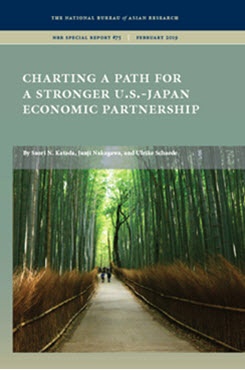U.S. and Japanese Economic Statecraft toward China
The Reshaping of the Asia-Pacific Economic Order
This essay analyzes how the regional economic order in the Asia-Pacific is shaped by the economic statecraft and posturing of China, the U.S., and Japan.
EXECUTIVE SUMMARY
MAIN ARGUMENT
The use of economic statecraft by China, the U.S., and Japan to reshape the regional economic order in the Asia-Pacific has been characterized by a mix of competition and cooperation. Competitive and cooperative dynamics are at play not only in bilateral exchanges such as trade disputes but also in efforts to set new standards and build institutions. Amid intensifying leadership competition between the U.S. and China, a series of economic initiatives from the Trans-Pacific Partnership (TPP) to the Belt and Road Initiative and Asian Infrastructure Investment Bank have emerged. In this context, the Japanese government has simultaneously engaged in a strategy of hedging between the two powers while also taking the lead in keeping the TPP alive after the U.S. withdrew in January 2017 under the Trump administration. All these actions and strategies exhibit the ambitions on the part of these three major powers to use economic statecraft to reshape the regional economic order in their respective favor without destroying the connectivity and interdependence that is the foundation of the region’s prosperity. Economic statecraft is thus a vital instrument of competition that allows one major power to prevail over another without necessarily undermining the economic system on which they rely.
POLICY IMPLICATIONS
- Given its existing power over the regional economic order, the U.S. should continue to support this order and work to shape the economic rules to its advantage.
- Clearly realizing both its geoeconomic advantage and uncertainty, Japan should adopt a flexible economic strategy. Taking a lead in rule- and standard-setting continues to be its forte with or without U.S. cooperation.
- All parties should keep in mind that Chinese leadership is aware that in the long run a stable economic order is important for China’s continued prosperity. As such, the U.S. and Japan should try to actively shape such an environment through cooperation.
Saori N. Katada is a Professor in the School of International Relations at the University of Southern California.



